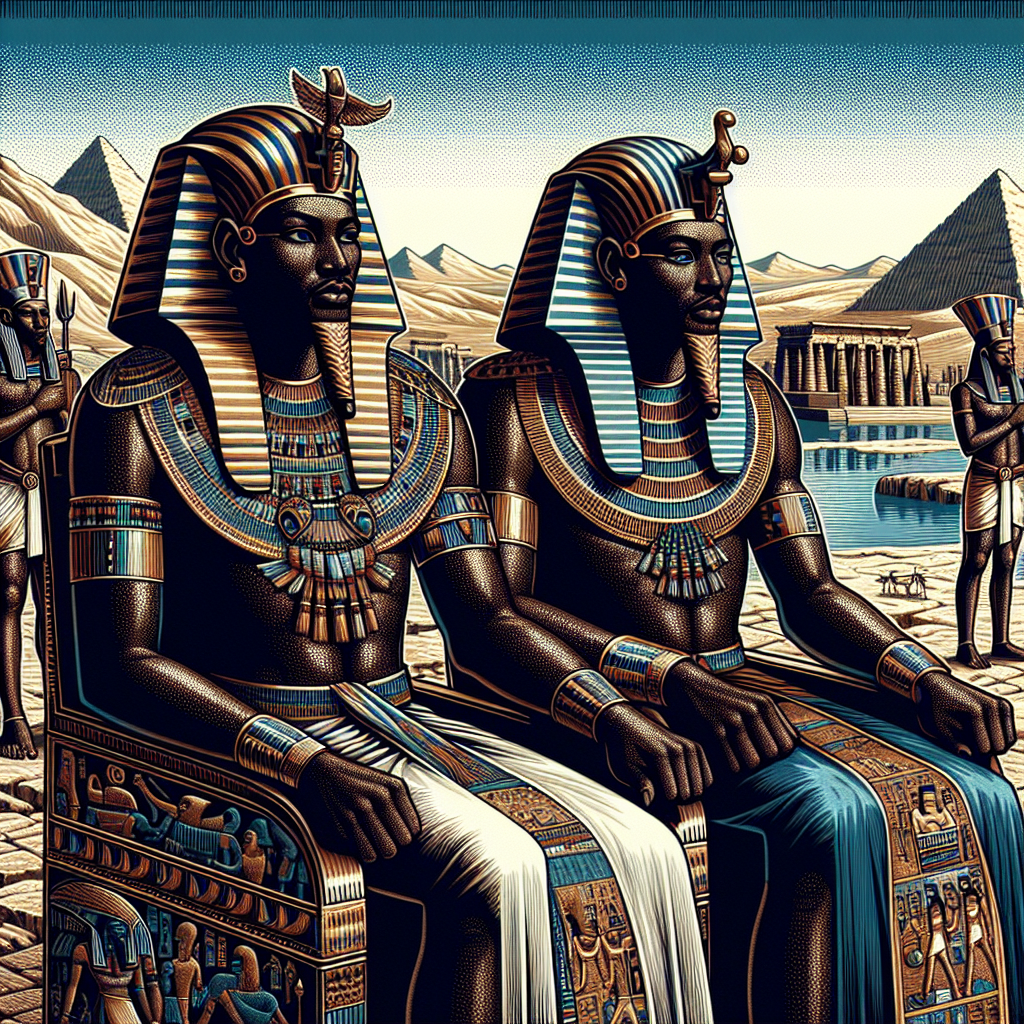Black Pharaohs: The Nubian Rulers Who Conquered Ancient Egypt
Introduction
Alright, let’s dive into a story that’s been glossed over for far too long: the Nubian rulers, the Black Pharaohs, who strutted their stuff right into the annals of ancient Egypt. You know, while everyone’s busy singing the praises of Cleopatra and her Egyptian glam squad, let’s not forget the OGs from Nubia who brought some serious heat to the Nile! These Black kings weren’t just rulers; they were powerhouses that redefined what leadership looked like and flipped the script on the absurdly narrow views about race in ancient times. Get ready as we unravel the history, influence, and legacy of these remarkable men who knew how to conquer, not just in battle but in the hearts and minds of a civilization!
Section 1: Historical Context of the Nubian Pharaohs
Before we dig into the glory of the Nubian Pharaohs, let’s set the stage. Ancient Egypt? A colossal empire full of temples that could make a modern architect weep, bountiful grains, and pyramids that scream “We know how to build!” But wait, just south of that golden empire, you had Nubia, not just a quaint little neighborhood. Oh no, it’s where rich resources flowed, including gold mines that shimmered brighter than the crowns of any pharaoh. For centuries, Nubians and Egyptians shared a cozy trade relationship—because who doesn’t love a good cultural exchange? But as history likes to throw curveballs, that friendship soured, and it was time for Nubians to shine—literally!
Section 2: The Rise of the Nubian Pharaohs
Enter the Nubians, stage left! The kingdoms of Kush and Meroe took center stage around 2500 BCE. Grab your popcorn, folks, because these kingdoms didn’t just appear; they came in hot! King Piye (or Piankhi—call him what you want, he was still fierce) led an army into Egypt like he was flipping the Monopoly board after a few bad dice rolls. And then there’s Taharqa, who said, “Why settle for less when you can be the jackpot?” Kush was painting new strokes on the canvas of history, outshining the declining New Kingdom with military might and a flair for drama worthy of a Netflix series.
Section 3: The Nubian Conquest of Egypt
And oh boy, did they conquer! The Battle of Eltekeh wasn’t just any skirmish; it showcased Nubian warriors proving they were no pushovers. They didn’t just waltz into Egypt; they stormed in and claimed the much-coveted title of the 25th Dynasty. Unlike a certain warrior race known for destruction, our Black Pharaohs respected Egyptian culture—imagine that! They blended governance and religion like chefs crafting the perfect gumbo, unifying Nubia and Egypt and leaving behind a dynastic legacy that would make any historian drool.
Section 4: Cultural Exchange and Influence of the Black Pharaohs
Let’s talk culture, shall we? These Nubian rulers didn’t just sit on thrones; they shook things up! They brought their unique architectural style to the table, creating pyramids that had a little Nubian twist—because why blend in when you can stand out? Their vibrant artistry added rich layers to Egyptian iconography, merging gods and cultures like a perfect Instagram filter. The Nubian influence didn’t just fade; it hung around like that catchy song you loved back in high school.
Section 5: The Lasting Legacy of the Nubian Pharaohs
Now let’s get real about the legacy of our Black Pharaohs. They didn’t just play in the sandbox; they reshaped it! Yet, the narratives about them have often been steered by biases thicker than a textbook written by someone who slept through history class. But as we march into the modern era, there’s a growing chorus of voices recognizing the importance of Nubian history—because you can only ignore greatness for so long before it demands its groove back.
Conclusion
Embracing the story of the Nubian Pharaohs is like finally acknowledging that the earth isn’t flat—mind-blowing and oh-so-essential! Their stories embody the beautiful tapestry of our shared history and deconstruct notions of race that history books love to misrepresent. As we peel back the layers of time, let’s make sure we’re listening to the ancestors and elevating diverse narratives, acknowledging that our history isn’t just a black-and-white picture but a vibrant painting filled with influences, cultures, and people who were calling the shots long before modern civilization even realized it had a pulse.
Additional Resources
Looking to get lost in more stories of the Black Pharaohs? Here’s where you can start:
- Books: Check out “The Nubian Pharaohs: Egypt’s Black Kings” by Charles Bonnet—your bookshelf deserves a glow-up.
- Documentaries: Dive into “Secrets of the Nile” and “The Lost Kingdom of the Black Pharaohs” when you need a documentary binge.
- Sites: Get up close and personal with history at the National Museum of Sudan or the archaeological site of Meroë—because history should never be just a footnote.
As we unearth these powerful narratives, let’s demand that the world recognizes the depth and richness of our shared heritage—because, honey, the Black Pharaohs are here to remind us that kings and queens don’t need a crown to reign supreme!



0 Comments